News | November 29th, 2018
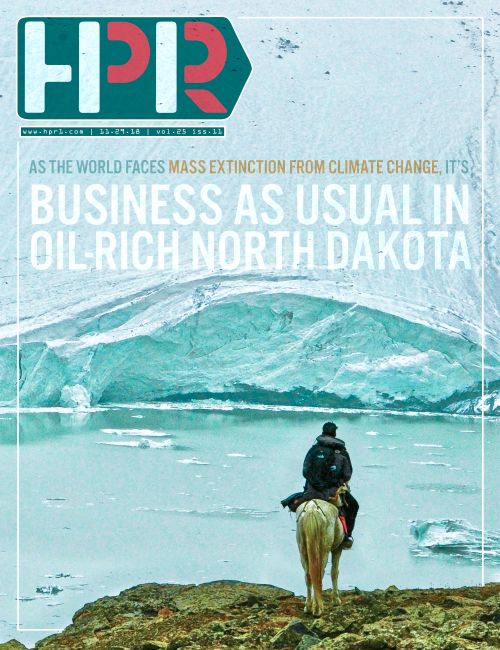
On the busiest shopping day of the year the federal government published an eye-opening report on climate change, saying that warming temperatures could soon imperil the American way of life and harm the health of nearly every citizen.
Another report published earlier and conducted by independent scientists called for radical changes in the energy, transportation, food, and housing sectors, if the world is to survive.
The federal government’s version of the Intergovernmental Panel on Climate Change, or IPCC, included the research from scientists, researchers, and organizations from around the world and was endorsed by NASA, the National Oceanic and Atmospheric Administration, the Department of Defense, and 10 other federal scientific agencies.

Adding insult to injury, President Donald Trump told reporters on Monday that his own government’s report was a hoax.
“I’ve seen it, I’ve read some of it, and it’s fine. I don’t believe it [report],” Trump said, according to Reuters.
The federal government’s version of the IPCC report -- sanctioned by Congress -- was originally scheduled to be published in December, according to national media outlets, but was released on Black Friday, a time when many Americans are on a long holiday weekend distracted by shopping. The fact that the report was released early could mean that Trump’s Administration wanted to hide the facts, or at the very least, is reluctant to lend credence to the panel’s findings.
“It’s stupid, the reason they did that is because this particular administration wants to get rid of all regulations,” Steven Travers, assistant professor of biological sciences at North Dakota State University, said. “This administration doesn’t believe in science… or the belief that we have a big problem coming up… I think that was done on purpose because they didn’t want people to pay attention to it.”
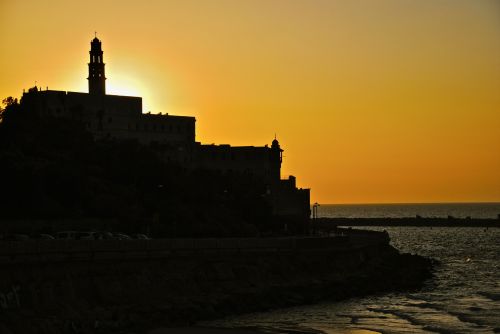
The IPCC is a group of historically conservative scientists from various backgrounds, which makes the most recent report “scary,” Travers said.
“And the U.S. version of it has pretty clear results in there that we will have economic impacts,” Travers said. “I am amazed by it, and freaked out about it.”
Condemnation of the federal government’s timing for releasing the report also came from national figures across the nation.
“Unbelievably deadly and tragic wildfires in the west, hurricanes batter our coasts, and the Trump administration chooses the Friday after Thanksgiving to try and bury this critical U.S. assessment of the climate crisis,” Al Gore, former Vice President, said in a press release. “The President may try to hide the truth, but his own scientists and experts have made it as stark and clear as possible.”

Jeffrey Sachs, a professor and a director at the Center for Sustainable Development at Columbia University, decried Trump’s Administration and those that support him are “loyal servants of the fossil-fuel industry” and should be held accountable for “climate crimes against humanity” in an editorial published by CNN.
“They are the authors and agents of systematic policies that deny basic human rights to their own citizens and people around the world, including the rights to life, health, and property,” Sachs said.
The IPCC’s findings were simple: natural resources, crops, and ecosystems will die. Worse than that, however climate change will hurt American and international coffers. Human activities are responsible for changing the planet’s climate faster than any time in modern civilization.
A second report released on August 14, 2018 entitled “Global Sustainability Development Report 2019,” which was drafted by a group of independent scientists from Finland, reported that the era of cheap energy is quickly coming to an end.
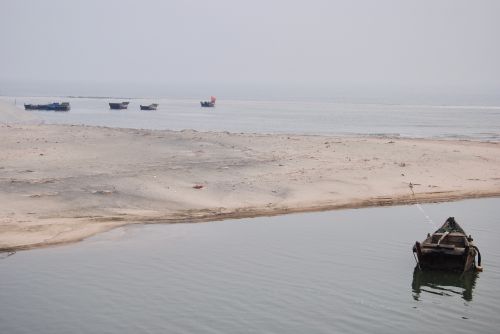
“Business economies are for the first time in human history shifting to energy sources that are less energy efficient, production of usable energy will require more, not less, effort on the part of societies to power both basic and non-basic human activities,” the Finnish report stated.
“In addition to rapid climate change, biodiversity loss, and other environmental hazards, societies are witnessing rising inequality, rising unemployment, slow economic growth, rising debt levels, and governments without workable tools for managing their economies.”
World climate temperatures have risen 1 degree Celsius above industrial era levels, and are on course to reach 1.5 degree Celsius in less than 12 years, the IPCC report stated. The difference between climate and weather is that weather is the conditions of the atmosphere over a short period of time, while climate is how the atmosphere behaves over longer periods of time, according to NASA.
After the IPCC’s report was published, the United Nations warned the world that a half percent temperature rise would result in the deaths of hundreds of millions of lives. If the trend is not stopped by 2040, nearly all coral reefs will die, wildfires and heat waves would sweep the planet, drought and flooding would decrease the world’s food supply.
Results of global warming are already evident, the report stated, and some are irreversible. Sea levels and water temperatures are rising. Land and oceanic ecosystems are becoming extinct. The temperatures in inhabited areas are becoming extreme, both hot and cold. Longer periods of drought producing fires, the lack of rainfall, and extreme flooding are already occurring around the world.
All forms of fossil fuel energy will become too expensive to afford and will herald sharp rises in poverty.
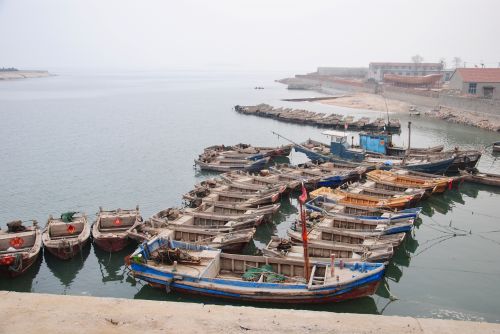
If left unchecked, sea levels will continue to rise, putting coastal cities in danger, the report stated.
“Sea level rise will continue beyond 2100 even if global warming is limited to 1.5 degree Celsius in the 21st century,” the report stated. “Marine ice sheet instability in Antarctica and/or irreversible loss of the Greenland ice sheet could result in multi-metre rise in sea level over hundreds to thousands of years. These instabilities could be triggered at around 1.5 degree Celsius to 2 degree Celsius of global warming.”
With the rise of sea levels come human and ecological risks including massive seawater intrusion, flooding, and damage to infrastructure. High tundra forests and shrubs will be lost with further warming.
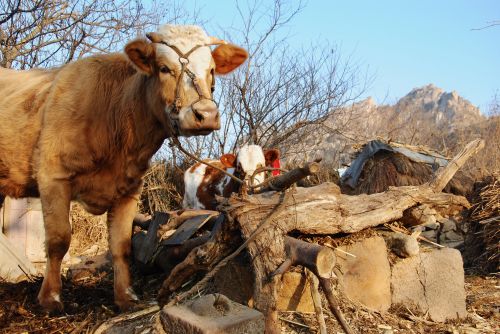
Not only will coastal cities flood and ecological habitats become extinct, but climate change also holds massive risks to human and food security, water supplies, and economic growth.
“Populations at disproportionately higher risk of adverse consequences with global warming of 1.5 degree Celsius and beyond include disadvantaged and vulnerable populations, some Indigenous peoples, and local communities dependent on agricultural or coastal livelihoods,” the IPCC report stated. “Poverty and disadvantage are expected to increase in some populations as global warming increases; limiting global warming to 1.5 degree Celsius compared with 2 degree Celsius, could reduce the number of people both exposed to climate-related risks and susceptible to poverty by up to several hundred million by 2050.
“Any increase in global warming is projected to affect human health, with primarily negative consequences.”
Crops such as maize, rice, wheat, and other cereal crops will suffer, and with that livestock will be adversely affected due to rising temperatures, feed quality, the spread of diseases, and water resource availability.
During the growing season America’s breadbasket will experience the highest temperature changes, which will increase heat-related human mortality, and negatively affect crop yields, coastal flooding, low altitude fisheries, warm water corals, and even the tourism industry, according to the Finnish report.
Farmers in the Midwest will suffer physically and financially. Extremes in temperature will wilt crops and kill livestock more than any other region in the United States, the report stated. To combat the onslaught of high rainfall events and higher temperatures substantial investments will be required, which will in turn raise crop prices.
Steven Travers has been working with how climate change is influencing native plant life to North Dakota and the surrounding areas. Already, lakes are thawing earlier than before. Hunters during deer season have to freeze their prey immediately after a kill, different from years past as the weather was usually cold enough to keep meat from spoiling.
The potentially good news is that the state may be getting longer growing seasons, perfect for sweet corn. The bad news, however, outweighs the good. North Dakota farmers are already seeing southern diseases and pathogens coming closer.
“Diseases from the south will move north,” Travers said. “There are going to be new pathogens that can make it here that we didn’t have to worry about before. The impacts of these types of things can be enormous.”
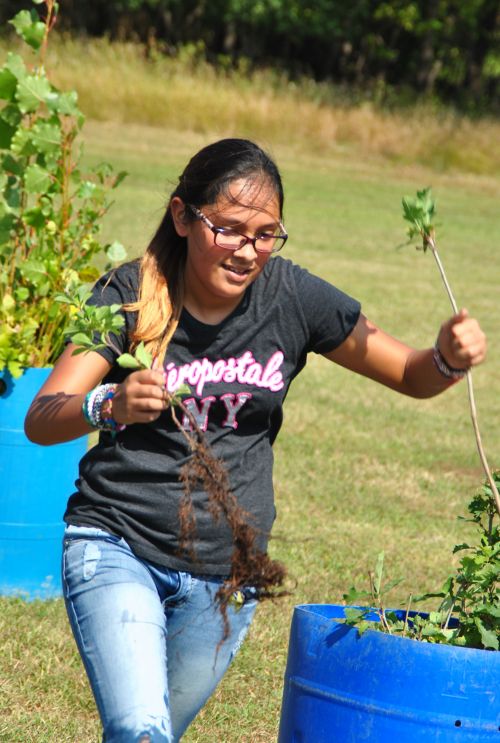 The state must begin reducing the use of fossil fuels – coal and oil, Travers said, and focus on alternative forms of energy and electric transportation.
The state must begin reducing the use of fossil fuels – coal and oil, Travers said, and focus on alternative forms of energy and electric transportation.
“Coal has got to go, and we are utterly dependent on coal,” Travers said. “Burning fossil fuels is clearly what is causing greenhouse gas problems, it’s pretty clear from the IPCC report that we need to let go of fossil fuels and go on to other sources.
“We can’t always do business like we always have. The ‘business as usual’ model, which is what is being followed now, it’s not going to work. Eventually we are going to get to the point where we can’t fix it. As a biologist that is horrifying to me.”
North Dakota is a perfect state for investing in and developing wind energy.
“Why aren’t we doing this?” Travers said. “We will be lucky if we can make it.”
Climate change plays a role in why violent conflicts at national borders are occurring more frequently, Travers said. Water resources are disappearing, forcing people to migrate.
“They’re getting out of these places in part because of climate change,” Travers said. “The military is really worried about climate change because it is making borders unstable. Water is drying out in one country and there are big conflicts because of that.”
The warming trend can be slowed if emission reductions in all sectors are enforced long before 2030. The Paris Agreement, which Trump pulled the nation out from, wouldn’t be enough to limit greenhouse gas emissions to a manageable level, according to the IPCC report.
“Climate change impacts and responses are closely linked to sustainable development which balances social well-being, economic prosperity and environmental protection,” the IPCC report stated. “The consideration of ethics and equity can help address the uneven distribution of adverse impacts associated with 1.5 degree Celsius and higher levels of global warming, as well as those from mitigation and adaptation, particularly for poor and disadvantaged populations, in all societies.”
The Finnish report stated that the current “ways in which energy, transport, food, and housing are produced and consumed” must change.
“In terms of greenhouse gases, global net emissions should be zero around 2050 – in Europe and the US by 2040,” the Finnish report stated.
Currently, 80 percent of the world’s energy comes from fossil fuels: oil, natural gas, and coal, and “now, the entire energy infrastructure needs to be transformed,” the Finnish report stated.
Meeting growing levels of energy needs in the next few decades with low-carbon solutions will be “extremely difficult, if not impossible. The development of energy production will also need to be closely linked with the development of the systems and practices of energy consumption, for example, the electrification and sharing of transport vehicles,” the Finnish report stated.
In the cities, biking and electric public transportation should be emphasized, the Finnish report recommended.
Widespread importing of cheap basic food should give way to diverse nutritional food grown locally. Dairy and meat diets should give way to primarily plant-based diets, the Finnish report recommended. Scientists predict that unique, autonomous economies and societies should engage in regulated international trade for food security rather than for the sake of free trade.
Energy-intensive concrete and steel buildings causing climate emissions and wastes must end; long-lasting wood building providing carbon storage is required.
“It is clear from these examples that strong political governance is required to accomplish the key transitions,” the Finnish report stated. “Market-based action will not suffice – even with a high carbon price. There must be a comprehensive vision and closely coordinated plans. Otherwise, a rapid system-level transformation toward global sustainability goals is inconceivable.”
The results of such massive transformations on a worldwide scale would mean a shift in the world economy and geopolitics, the Finnish report stated.

“Economic activity will gain meaning not by achieving economic growth but by rebuilding infrastructure and practices toward a post-fossil fuel world with radically smaller burden on natural ecosystems,” the Finnish report stated. “In rich countries, citizens would have less purchasing power than now, but it would be distributed more equally.
“Citizens in all countries would have access to meaningful jobs and they could trust that a desirable future is being constructed on the collective level.”
The inevitable threats from climate change will threaten livelihoods across the planet, giving cause for mass migration, the Finnish report stated.
“It is in the interest of all countries to maintain local opportunities for a good life because different countries and areas have different path-dependencies and goals, there is no socio-technical solution that fits all.”
Rich countries facing dramatic reductions in emissions will be slower to change while developing countries can make significant improvements with new investments in low-carbon solutions.
“The developing countries do not need to begin by dismantling the fossil-fuelled infrastructure that has provided a range of low-cost production and consumption opportunities in rich countries for decades,” the Finnish report stated. “The most likely option for initiating transitions to sustainability would be for a group of progressive states to take the lead.”
February 16th 2026
January 27th 2026
January 27th 2026
January 26th 2026
January 24th 2026

_(1)_(1)_(1)_(1)_(1)__293px-wide.jpg)



